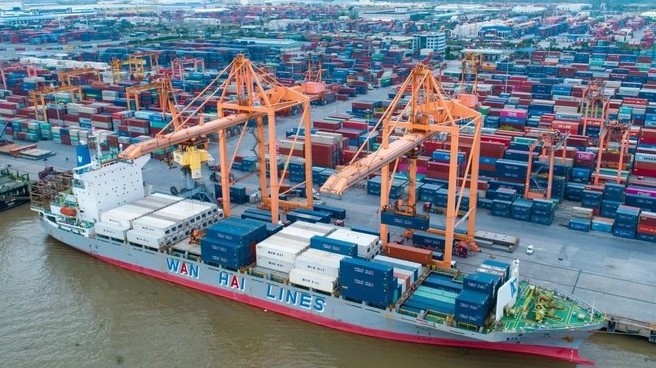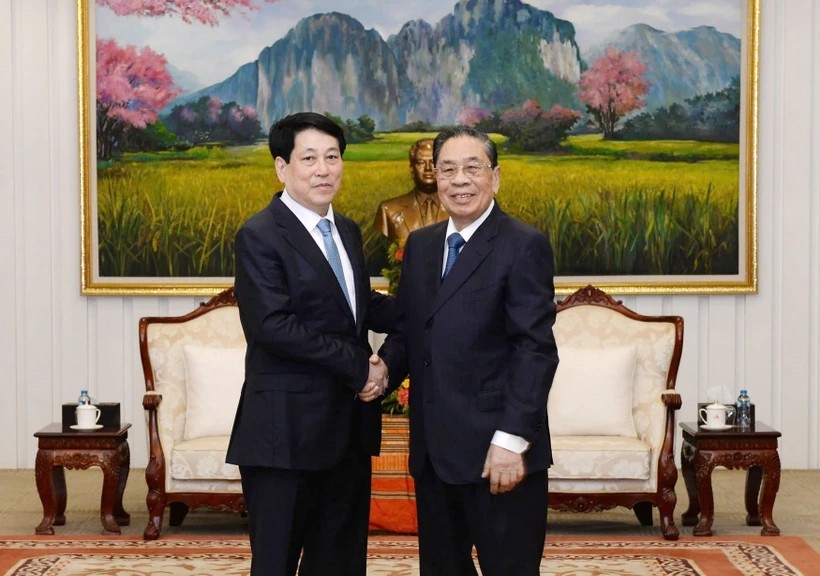Vietnam News Today (Dec. 21): Vietnam's Economy Remains Resilient in 2023
| Vietnam News Today (Dec. 21) notable headlines 2023 a particularly successful year for Vietnamese diplomacy Vietnam's economy remains resilient in 2023 Vietnam posts trade surplus for eighth consecutive year with US$26 billion Relaxed visa policy a new milestone in Vietnam-Hong Kong ties Vietnam successfully reduces 35% of HCFCs consumption in 2020-2024 Lonely Planet reveals four amazing secret destinations in Vietnam Ideas and solutions to meet Vietnamese net-zero emission commitment Vietnamese airlines to transport over 80 million passengers next year Challenges and opportunities for exports in 2023 and next year |
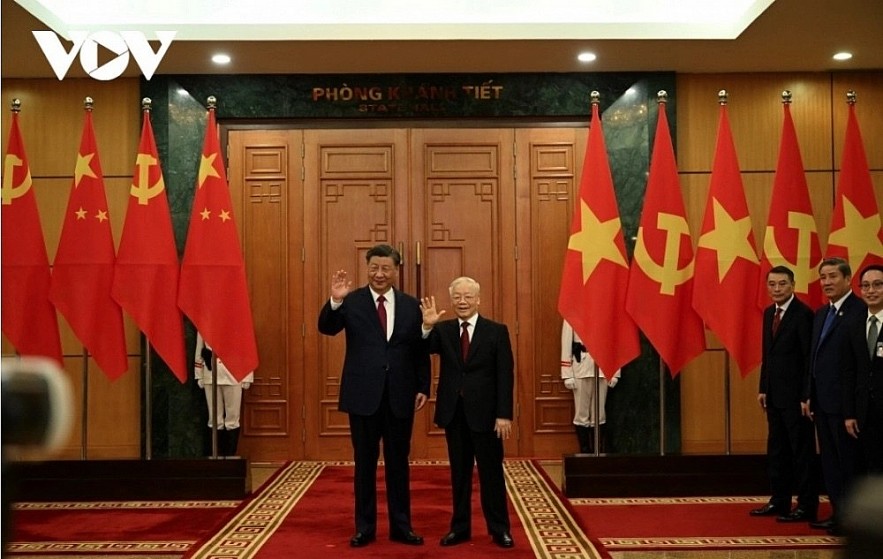 |
| General Secretary of the Communist Party of Vietnam (CPV) Nguyen Phu Trong and General Secretary of the Communist Party of China (CPC) Central Committee and President of the People's Republic of China Xi Jinping. |
2023 a particularly successful year for Vietnamese diplomacy: Cuban expert
This year is viewed as a particularly successful period for Vietnamese diplomacy in raising the level of relations with important partners in the international arena, according to Dr. Ruvislei González Saez, senior researcher at the Center for International Policy Research (CIPI).
In a recent media exchange held in Havana, Dr. Ruvislei emphasized that the complexity of today's world with major uncertainties leads to the need to implement a peaceful, diverse, and responsible foreign policy, thereby contributing to the further enhancement of international relations.
Vietnamese diplomacy has achieved many outstanding achievements this year, including visits by several leaders of the world's leading powers, such as the United States and China, as well as the upgrading of bilateral relations with specific results.
Upon assessing these diplomatic moves, Dr. Ruvislei, also director of the International Relations Program in Cuba, emphasized that these activities all reflect the achievements of the nation’s friendly foreign policy with the world.
Specifically, in terms of bilateral relations, the nation has deepened its comprehensive strategic cooperative partnership with China and agreed to build upon a "Community of Shared Future".
The country also moved to upgrade its relationship with Japan to that of a comprehensive strategic partnership for the causes of peace and prosperity in Asia and throughout the wider world, cited VOV.
At a multilateral level, the nation started the year by assuming the role of member of the UN Human Rights Council for the 2023 to 2025 term. Also this year, the country was elected as Vice Chair of UNESCO’s Intergovernmental Committee for the Safeguarding of Intangible Cultural Heritage (2003 Convention), representing the Asia-Pacific region.
The country and China agreed to promote a co-operation plan which connects the "Two Corridors, One Belt" framework with the "Belt and Road Initiative". Over the past year, the country continued to be an active member of ASEAN.
The researcher who spent many years as head of CIPI's Asia Department believes that elevating the level of relations with countries, including the US and Japan, will give leverage to the Vietnamese economic development process.
The US represents the country’s major export market with a large trade surplus, as well as new opportunities for developing ties in a multitude of fields such as education, health, climate change response, and security-defense.
Meanwhile, Japan plays a very important role in terms of providing official development assistance (ODA) and has been one of the most important investors since the nation began its Doi Moi (Renewal) process.
Bilateral relations have increased significantly over recent times, including science - technology, education, culture, and defense.
Dr. Ruvislei highlighted the importance of cultural diplomacy as part of promoting the country's image, citing the policies of countries such as Japan, China, the Republic of Korea (RoK), and India, all of which attach importance to promoting this way.
Cultural exchanges today have become a very important tool for countries. Indeed, cultural fields such as music and traditional costumes can create elements of internationalization, making cultural diplomacy an important element in terms of the implementation of citizen diplomacy.
The Cuban scholar highly appreciated the country’s rich and diverse culture, stating his belief that culture can serve as an important bridge to bring Vietnamese culture to the world. Although Vietnamese cuisine has appeared in many Asian restaurants, there remains plenty of room to continue promoting and expanding its influence.
According to Dr. Ruvislei, amid a complex international context, maintaining independence in the foreign policy in a neutral way without abandoning the principles of protecting a more equitable world in which everyone is respected, regardless of the country's size, is the correct path of the Vietnamese diplomacy.
Vietnam's economy remains resilient in 2023: WB official
Andrea Coppola, World Bank Lead Economist for Vietnam, has described Vietnam in 2023 as resilient, saying that amid the global economic slowdown, the Southeast Asian nation was still able to sustain a rate of growth that many other countries in the rest of the world can only dream about.
According to Coppola, Vietnam is considered one of the most open economies in the world. Its strong trade relations with the rest of the world are a source of strength and success. Vietnam’s economic performance in 2023 is positive when the very challenging global context is put into consideration.
Economic growth in the US was about 2.5% in 2023, he said, adding that in the European area, economic growth was even weaker at about 0.5%. Despite the global challenges, Vietnam was able to continue growing at relatively fast rates, according to VNA.
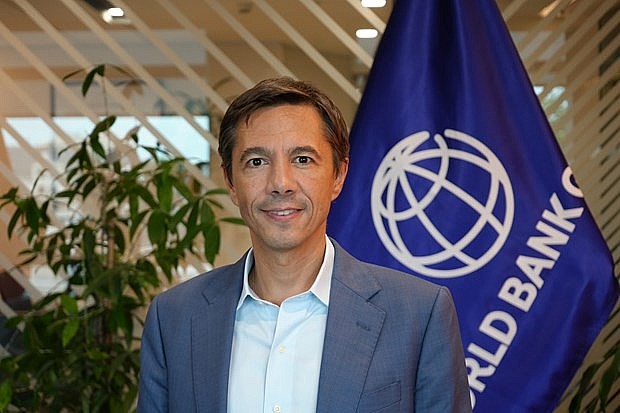 |
| Andrea Coppola, World Bank Lead Economist for Vietnam (Photo: WB) |
The last part of 2023 showed signs of economic recovery in the country, he said, noting that this recovery is driven by three main factors: a gradual recovery of external demand for Vietnamese exports, increasing public investment, and resilient private consumption.
Vietnam also raised a lot of attention in 2023 as media outlets with global reach have published articles to underscore the country’s performance and potential, he said, stressing that the visits of world leaders to Vietnam also attracted even more the attention of the international community.
According to the economist, Vietnam is an appealing destination for international investors because of its economic and political stability and its capacity to integrate in the global economy.
He stressed that in such a context, it is critical for the country to continue strengthening the business environment and attract private investors’ attention to fully take advantage of the impact of global geopolitical developments on international investment and trade.
After the global slowdown experienced in 2023, global economic growth is expected to decelerate further in 2024, including in key trade partners of Vietnam such as the US, Coppola said.
The WB hopes that the demand for Vietnamese exports from the rest of the world will recover in 2024, he said, recommending Vietnam to leverage its internal strength and boost the productivity growth of its domestic economy to transform the challenges provided by the global economic slowdown into an opportunity to further strengthen its economic growth model.
Authorities can play an important role to support the economy through fiscal policy, particularly by accelerating the implementation of transformational public investment and infrastructure projects which are going to strengthen economic growth both in the short term and in the longer term, he said.
According to the expert, Vietnamese people are the greatest source of the country’s internal strength, so he suggested Vietnam continue promoting the private sector development and boosting productivity by upskilling the labor force and physical capital development through public investments in transport and energy infrastructure that can further strengthen the competitiveness of the private sector.
According to Vietnam’s Macro and Poverty Outlook released by the WB in October, Vietnam’s economic growth is expected to slow to 4.7% this year before recovering to 5.5 % in 2024 and 6.0 % in 2025.
Vietnam posts trade surplus for eighth consecutive year with US$26 billion
Vietnam enjoyed a trade surplus for the eighth consecutive year with US$26 billion over the past 11 months, three times higher than the figure recorded last year, heard a conference aimed at reviewing the industry and trade sector held on December 20 in Hanoi.
Insiders pointed out that despite numerous challenges, such as shrinking global trade and weak consumer demand in major export markets, the country has successfully seized upon opportunities from the recovery of traditional markets to boost exports.
Thanks to these factors, the nation’s total import-export turnover stood at an estimated US$683 billion this year, of which exports and imports hit US$354.5 billion and US$328.5 billion, respectively.
Experts outlined that the consecutive trade surplus has made a positive contribution to maintaining the overall balance of payments, increasing foreign exchange reserves, and stabilizing exchange rate.
Deputy Minister of Industry and Trade Phan Thi Thang said although the global aggregate demand has fallen, Vietnamese export activities continue to overcome difficulties with the export decline being narrowed from 12% in the first half of the year to about 4.6% for the entire year of this year.
Deputy Minister Thang attributed the shrinkage to the export market diversification to African, Eastern Europe, Northern Europe, and West Asian countries.
However, experts outlined that although the decrease in exports continues to narrow, the national economy has not yet fully recovered compared to the same period last year with exports dropping by 4.6% to US$354.5 billion, which has not yet fulfilled the set target of 6%.
The reason is the level of dependence placed on the foreign-invested sector with the export turnover of FDI enterprises accounting for roughly 73% of total export turnover, VOV reported.
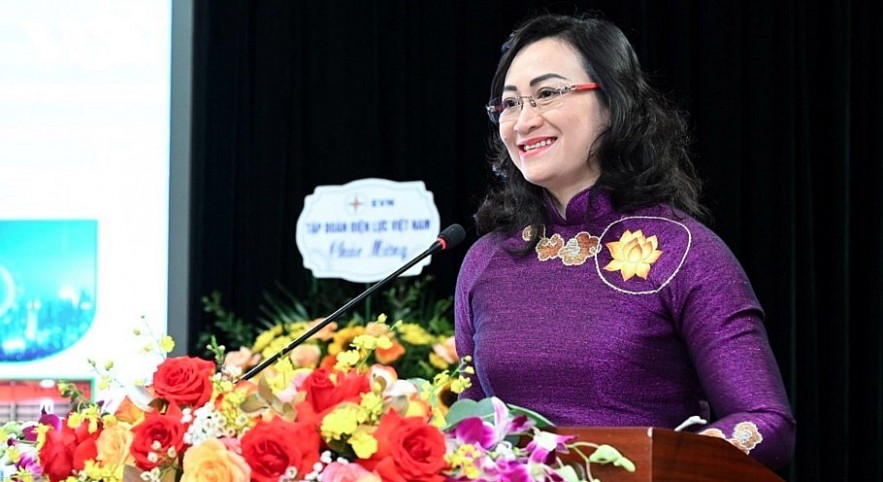 |
| Deputy Minister of Industry and Trade Phan Thi Thang addresses the event. |
Furthermore, the domestic production sector depends heavily on imported raw materials with imports for key product groups dropping sharply.
In line with this, imports of phones of all types and components are estimated to have decreased by 57.4% compared to last year, while imports of steel and fabric fell by 17.8% and 12.9%, respectively.
Although the trade surplus hit a record of US$26 billion, this positive figure was mainly caused by a sharp decline in imports compared to exports, Deputy Minister Thang noted.
Insiders forecast that the global uncertainties will continue to put pressure on the nation’s industrial production and import-export activities ahead in 2024.
Furthermore, with major economies growing slowly, the global aggregate demand is anticipated to not rebound strongly, thereby affecting export results next year.
As a means of achieving the goals set for 2024, experts underlined the need to support businesses as a means of restoring production, seeking new markets to import and export raw materials as well as spare parts and components for production, and deeply participating in the global supply chain.
Moreover, local firms are advised to effectively tap into free trade agreements (FTAs), diversify export markets, as well as signing new FTAs with other potential partners such as the United Arab Emirates and the Southern Common Market MERCOSUR to boost exports.
Relaxed visa policy a new milestone in Vietnam-Hong Kong ties: Experts
An easing of the visa policy for Vietnamese citizens by the Hong Kong Special Administrative Region of China from October 25 is one of the highlight's in the relations between the two sides in 2023.
Experts said Hong Kong’s market opening for Vietnam's skilled workers as well as multiple-entry visas valid for 24 months for Vietnamese enterprises and visitors were a result of the sound coordination between authorities.
In nearly three years, the General Consulate of Vietnam persistently worked with relevant authorities, associations, enterprises and individuals in Hong Kong to mobilize the administration to change its policy for Vietnamese workers, while coordinating with Vietnamese agencies to handle shortcomings that Hong Kong has been interested in.
They held that the change in Hong Kong policy meets the territory’s demand for high-quality laborers, and offers job opportunities and facilitates travel for Vietnamese businessmen and citizens.
Vice Chairman of the Federation of Hong Kong Industries Anthony Lam said it is amazing that Hong Kong opened its labor market to Vietnam, describing it as a major flaw between the two sides that needs a long-term negotiation.
Vietnam and Hong Kong have enjoyed thriving trade and investment ties, with average growth of 14.5% over the past five years, he said, adding labor exchange between the two sides has an important role to play, cited VNA.
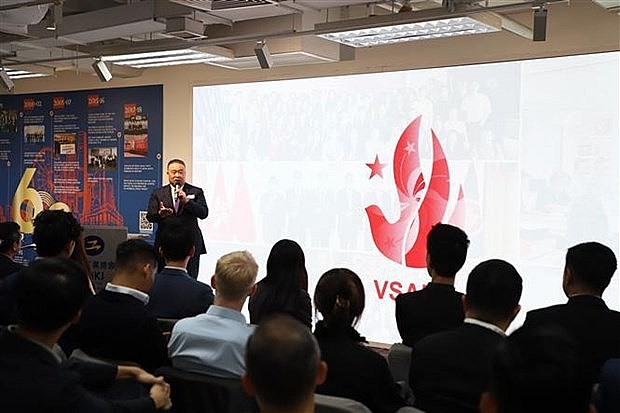 |
| Vice Chairman of the Federation of Hong Kong Industries Anthony Lam said it is amazing that Hong Kong opened its labor market to Vietnam. (Photo: VNA) |
Demand for connectivity and people-to-people exchange between the two will increase as Hong Kong is a financial hub not only in the region but also the whole world while Vietnam has provided a lot of IT services for Hong Kong.
Given this context, he said, easier travel will enhance cooperation.
He said Vietnam is a potential market where Hong Kong firms could find development opportunities, adding Hong Kong’s investment in Vietnam will increase in the coming time with the latter becoming an important production base in the world.
Doan Quynh Linh, a lawyer who has been living and working in Hong Kong for nearly 16 years, said the visa relaxation will open up a new page in the Vietnam – Hong Kong relations.
With this new policy, the Vietnamese community in Hong Hong will be expanded, making contributions to the economic development in the host territory and the Vietnam – Hong Kong relations, she added.
Hong Kong is an ideal fundraising hub for Vietnamese firms who want to expand their business, she said, stating they can send their experts and managers to Hong Kong for work while international firms based in Hong Kong can invite Vietnamese experts to Hong Kong for exchange and research.
Additionally, education cooperation between Vietnam and Hong Kong has witnessed rosy developments over years.
Boasting the world’s leading education establishments, open and dynamic economy, and policies to attract talents, Hong Kong has offered various opportunities to foreign students to pursue study and work there.
The Vietnamese General Consulate has worked with universities in Hong Kong and mobilized them to enhance admissions and provide scholarships for Vietnamese students.
Assoc. Prof. Phan Quang Tuan from the Hong Kong University’s Business School and head of the Hong Kong University’s representative office in Vietnam held that the Vietnamese diplomatic agency has an important role to play in removing visa bottlenecks for Vietnamese citizens. This is a good opportunity for Vietnamese students, parents and businessmen who will contribute to the relations in various areas, particularly economy, education and tourism, he said.
Vietnam successfully reduces 35% of HCFCs consumption in 2020-2024
Vietnam has successfully reduced its Hydrochlorofluorocarbons (HCFCs) consumption by 35 percent, from 3,600 tons per year to 2,600 tons per year, during the 2020-2024 period in an attempt to protect the ozone layer.
Head of the Climate Change Department under the Ministry of Natural Resources and Environment Tang The Cuong announced the above information at a conference on a summary workshop of the HCFC's Phase-out Management Plan - Stage II (HPMP II) project that took place in Ha Noi on December 18.
The project was sponsored by the World Bank (WB) and carried out by the Climate Change Department from 2018-2023.
HCFCs are used in several industries, including refrigeration and air conditioning, fire extinguishers, foams, and solvents.
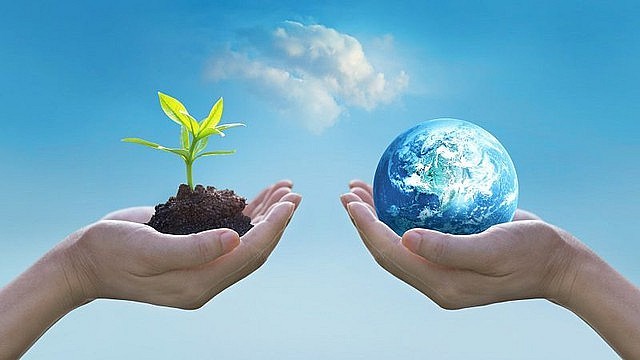 |
| Photo: VGP |
Vietnam, one of the five countries suffering the most from climate change, had constantly made efforts to protect the ozone layer and mitigate the impacts of climate change for many years following the Montreal Protocol as well as the United Nations Framework Convention on Climate Change.
In September 2019, the Government issued a resolution ratifying the Kigali Amendment to the Montreal Protocol, under which the country would build a roadmap for control over and reduction of HFCs between 2024 and 2045, cited VGP.
One of the achievements made in the work so far is the legalization of regulations on ozone layer protection in Article 92 of the 2020 Law on Environmental Protection, and guiding documents which will take effect from January 1 next year.
The Montreal Protocol was signed in 1987 and entered into force on January 1, 1989. It is an international treaty designed to protect the ozone layer by phasing out the production of numerous substances that are responsible for ozone depletion.
To date, it has been ratified by 197 countries, and has been one of the most successful environmental agreements to date. A united global effort to phase out ozone-depleting substances means that today, the hole in the ozone layer is healing, in turn protecting human health, economies and ecosystems.
Vietnam became a signatory of the United Nations Framework Convention on Climate Change in 1992, the Vienna Convention for the Protection of the Ozone Layer and the Montreal Protocol in 1994.
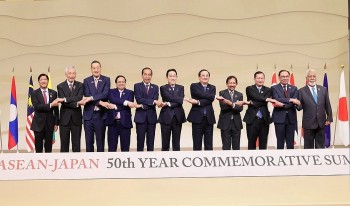 | Vietnam News Today (Dec. 18): Vietnamese PM Attends ASEAN-Japan Commemorative Summit in Tokyo Vietnam News Today (Dec. 18): Vietnamese PM attends ASEAN-Japan Commemorative Summit in Tokyo;Southern localities gear up for year-end tourism season; Google honors World Natural Heritage ... |
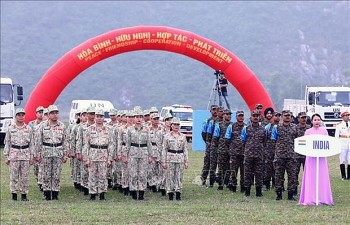 | Vietnam News Today (Dec. 19): Joint Peacekeeping Exercise Enhances Vietnam-India Defense Cooperation Vietnam News Today (Dec. 19): Joint peacekeeping exercise enhances Vietnam-India defense cooperation; Vietnam expects strong wave of Chinese investment; Vietnamese community in Russia carries out ... |
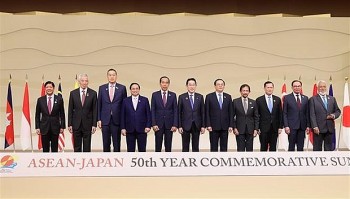 | Vietnam News Today (Dec. 20): PM Wraps Up Japan Trip For ASEAN-Japan Commemorative Summit Vietnam News Today (Dec. 20): Party leader underscores foreign affairs in “Vietnamese bamboo" diplomacy; PM wraps up Japan trip for ASEAN-Japan Commemorative Summit; Italian TV ... |
Recommended
 National
National
Vietnam News Today (May 10): Vietnamese Peacekeepers Honored with UN Medal in South Sudan
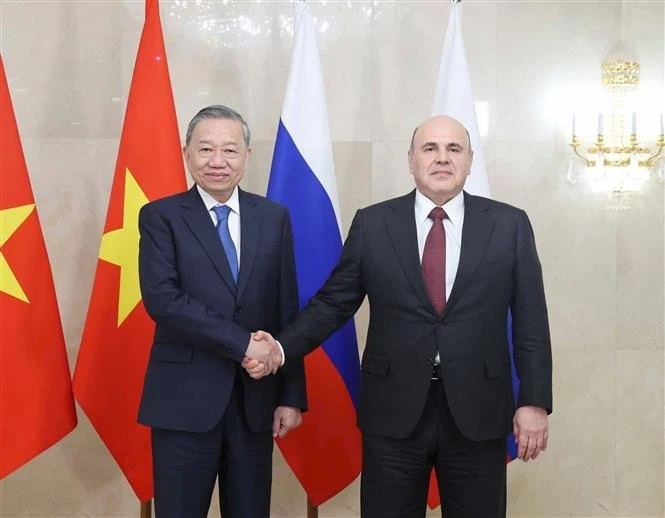 National
National
Vietnam News Today (May 9): Vietnam Ready to Work With Russia to Elevate Relations
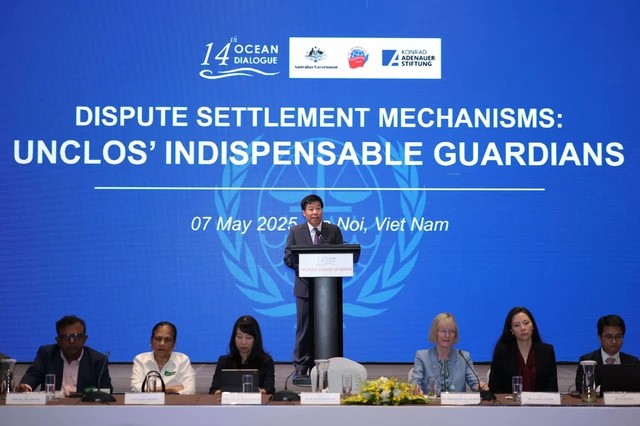 National
National
Vietnam News Today (May 8): Vietnam Remains Committed to UNCLOS
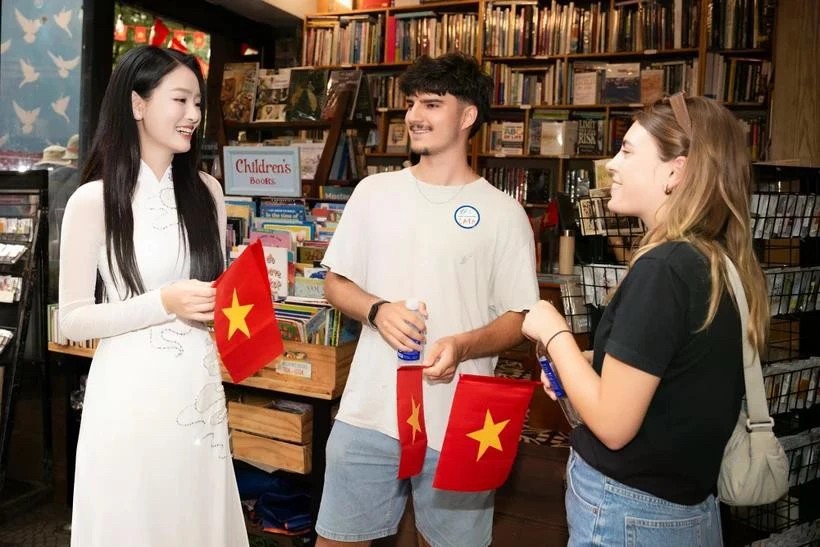 National
National
Vietnam News Today (May 7): Vietnam Hosts Over 7.67 Million International Visitors in First 4 Months
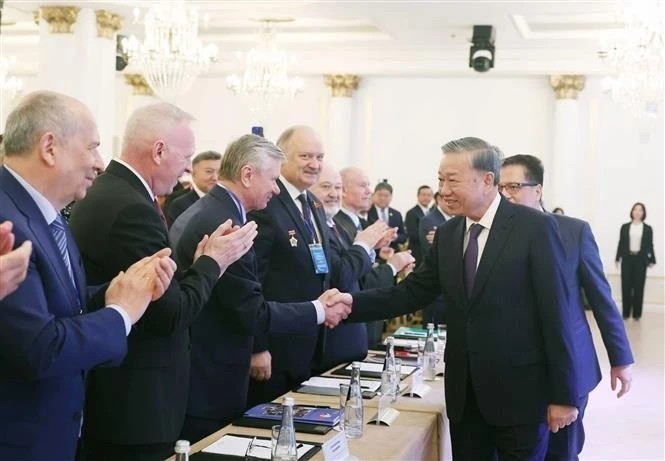 National
National
Vietnam News Today (May 12): Party General Secretary Meets With Russian Experts, Intellectuals
 National
National
Vietnam News Today (May 11): Vietnam, Austria to Boost Cooperation in High-Tech Development, Innovation
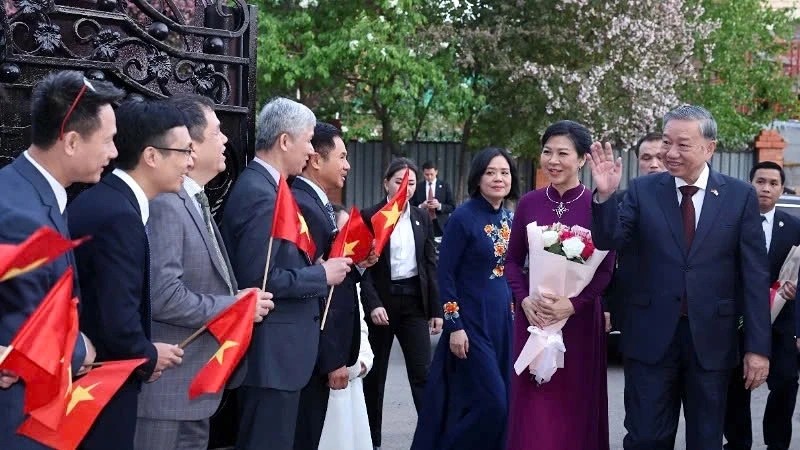 National
National
Vietnam News Today (May 6): Party Leader To Lam Meets Vietnamese Expatriates in Kazakhstan
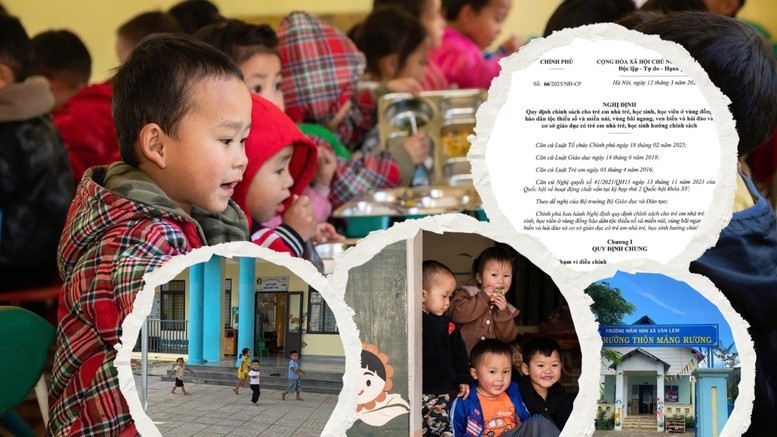 National
National

